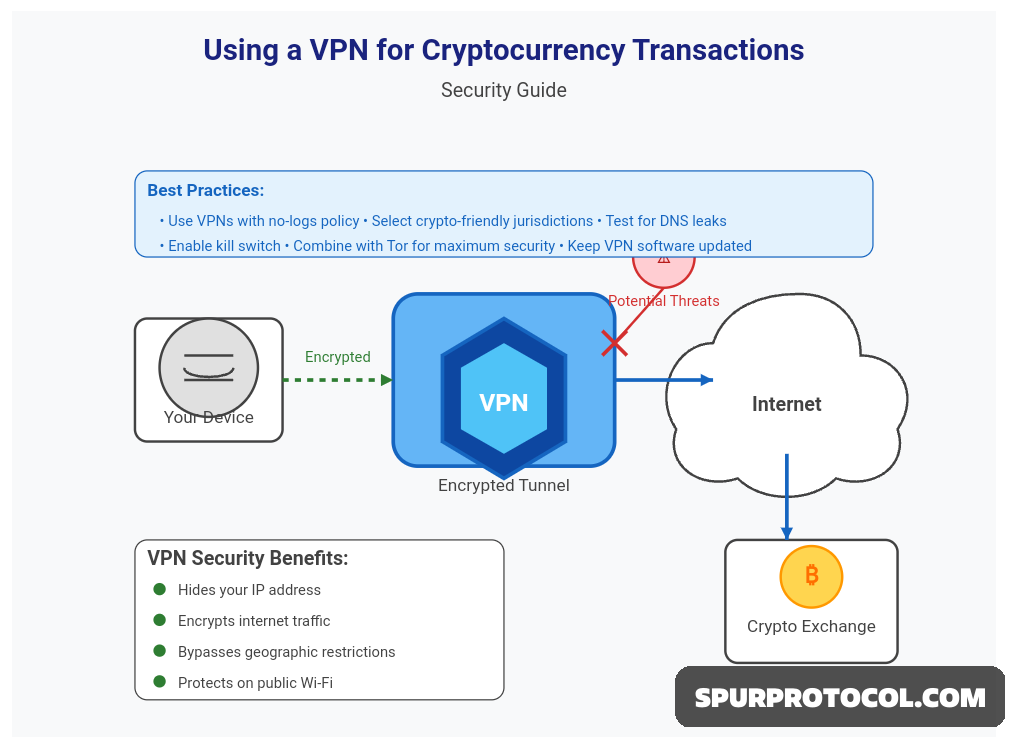How To Use A VPN To Keep Your Cryptocurrency Transactions Safe: A Security Guide
Cryptocurrency transactions offers you a level of privacy, but using a VPN (Virtual Private Network) gives you a double layer security by protecting you from hackers and enhancing your privacy, security, and anonymity when trading digital assets (cryptocurrencies) online.
Go Back

🕒 2:31 AM
📅 May 08, 2025
✍️ By Phaisal
How to Use a VPN to Keep your Cryptocurrency Transactions Safe
Cryptocurrency transactions offers you a level of privacy, but using a VPN (Virtual Private Network) gives you a double layer security by protecting you from hackers and enhancing your privacy, security, and anonymity when trading digital assets (cryptocurrencies) online.
Here's how to effectively use a VPN for your crypto activities.
Why Use a VPN for Cryptocurrency?
* Conceals your IP address, preventing tracking of your geographic location
* Encrypts your internet traffic, protecting sensitive transaction data
* Helps bypass geographic restrictions on certain exchanges
* Reduces risk of targeted attacks while using public Wi-Fi
* Adds a layer of privacy beyond what blockchain technology provides
Selecting the Right VPN
* Choose VPNs with strict no-logs policies. Examples include Cynerghost, ExpressVPN, NordVPN, and ProtonVPN
* Look for providers that accept cryptocurrency payments for added anonymity
* Ensure the VPN offers strong encryption (AES-256 or better)
* Select services with kill switch features that prevent data leaks if connection drops
* Avoid free VPNs as they may compromise your privacy or sell your data
Setting Up Your VPN for Crypto Trading
* Install the VPN application on all devices used for trading
* Connect to the VPN before accessing any cryptocurrency-related sites
* Select servers in crypto-friendly jurisdictions for optimal accessibility
* Test for DNS leaks before conducting transactions (use dnsleak.com)
* Enable the kill switch feature to prevent accidental exposure
Best Practices
* Combine VPN usage with other privacy tools like Tor for maximum security
* Regularly change VPN servers to avoid establishing patterns
* Keep your VPN software updated to protect against security vulnerabilities
* Consider using dedicated IP addresses for exchange logins to avoid security flags
* Remember that a VPN protects your connection but doesn't make blockchain transactions anonymous
When properly implemented, a VPN creates an additional security layer for your cryptocurrency activities, helping protect your financial privacy in an increasingly monitored digital landscape.
